- Home
- Video Courses
- Certifications
- FC0-U61: CompTIA IT Fundamentals Dumps

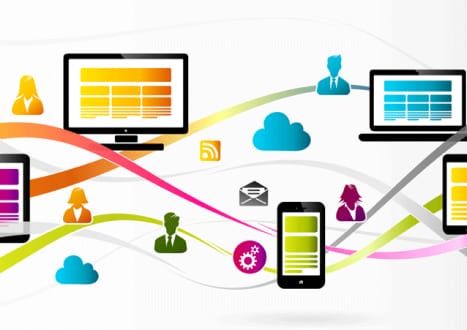
FC0-U61: CompTIA IT Fundamentals Certification Video Training Course
FC0-U61: CompTIA IT Fundamentals Certification Video Training Course includes 63 Lectures which proven in-depth knowledge on all key concepts of the exam. Pass your exam easily and learn everything you need with our FC0-U61: CompTIA IT Fundamentals Certification Training Video Course.
Curriculum for CompTIA ITF+ FC0-U61 Certification Video Training Course















FC0-U61: CompTIA IT Fundamentals Certification Video Training Course Info:
The Complete Course from ExamCollection industry leading experts to help you prepare and provides the full 360 solution for self prep including FC0-U61: CompTIA IT Fundamentals Certification Video Training Course, Practice Test Questions and Answers, Study Guide & Exam Dumps.
FC0-U61 ITF+ Practice Exams & Study Guide
Course Overview
The CompTIA ITF+ certification exam, identified by the code FC0-U61, serves as an essential entry point into the world of information technology. It is designed for individuals who want to build a foundation in IT fundamentals, regardless of whether their future career involves advanced technical specializations or simply gaining literacy in technology to support other professional roles. The exam is globally recognized and demonstrates a learner’s ability to understand essential concepts of computing, software, networking, security, and basic infrastructure. For many, the ITF+ acts as a gateway to higher-level CompTIA certifications such as CompTIA A+, Network+, and Security+, making it a stepping stone for IT career progression.
Purpose of the Course
This training course was designed to provide a complete roadmap to prepare learners for the FC0-U61 exam. It emphasizes clarity, accessibility, and comprehensiveness so that beginners without prior IT background can confidently approach the material. By following the course, learners will not only prepare for the exam but also gain practical knowledge they can apply in personal and professional environments. The course builds conceptual understanding and gradually develops hands-on awareness of how IT systems function in real-world settings.
Why ITF+ is Relevant
Technology continues to transform every industry, and digital literacy is more crucial than ever before. The ITF+ certification offers professionals, students, and career changers a credential that validates essential skills required to adapt in an environment where cloud computing, cybersecurity, and digital collaboration dominate. Even those who do not wish to pursue IT as a career will find that the ITF+ equips them with the ability to navigate technology more confidently, troubleshoot basic problems, and understand concepts that are increasingly relevant in both personal and organizational contexts.
Learning Objectives of the Course
The course is structured to ensure mastery of all exam domains. Learners will be able to understand IT terminology, describe the function of hardware and software, explain networking principles, and demonstrate basic cybersecurity awareness. They will also learn to identify different types of applications, manage databases at a basic level, and recognize the importance of best practices for IT troubleshooting and safety. By the end of this course, participants should be confident in their ability to take the FC0-U61 exam and achieve certification.
Importance of Foundational Knowledge
One of the most important aspects of the ITF+ exam is its role in establishing the groundwork for deeper IT study. Without a strong foundation, learners often struggle when they attempt more advanced certifications. This course ensures that every learner develops not just the knowledge to pass the exam but also a mindset of critical thinking, logical troubleshooting, and curiosity for how systems interconnect. These qualities are essential in both academic growth and professional IT practice.
Structure of the Training Course
This course is divided into four major parts, each with around 3000 words, ensuring that every domain and concept is covered thoroughly. Part one focuses on the overall overview of the course and the modules it contains. Part two will explore requirements for successfully following the course, including the prior knowledge needed, recommended tools, and study environment. Part three dives into detailed descriptions of each course section and explains who the course is intended for. Part four consolidates the material, provides exam strategies, and highlights future learning paths after ITF+.
Approach to Learning
The approach taken in this course is student-centered and beginner-friendly. Every topic is explained in simple, clear terms before gradually introducing more technical terminology. Examples are drawn from everyday scenarios to help learners make connections between abstract concepts and practical experiences. For instance, explaining networking through the analogy of sending letters through a postal service makes the idea easier to grasp before diving into IP addressing or routing.
Benefits of Completing the Course
Completing this course does more than prepare students for the FC0-U61 exam. It helps them develop confidence in using computers and applications, improves problem-solving skills, and enhances employability by showcasing a recognized certification. Employers are increasingly seeking candidates who, even if not IT specialists, possess a solid understanding of technology fundamentals. This course ensures learners are well-prepared to demonstrate their knowledge and stand out in competitive environments.
Who Should Consider This Course
The ITF+ course is suitable for high school or college students exploring IT career paths, professionals in non-technical fields who want to strengthen their digital literacy, career changers who are considering entry-level IT roles, and business owners or managers who want to understand the systems supporting their operations. In short, it is a universally beneficial credential because IT is no longer a niche skill set but a universal requirement across industries.
Modules
Introduction to the Course Modules
The course is divided into comprehensive modules that reflect the structure of the ITF+ exam domains. Each module contains explanations, examples, and contextual applications of knowledge. By structuring the course into modules, learners can follow a step-by-step journey that covers all relevant exam objectives.
Module One: IT Concepts and Terminology
This module introduces the fundamental language of IT. It ensures that learners understand key definitions, concepts, and terminologies. Topics include understanding binary numbers, recognizing different data types, identifying units of measurement in computing, and interpreting basic functions of computing systems. This foundational knowledge is critical because every subsequent IT concept builds upon the understanding of these terms. Without it, learners may find themselves lost in technical discussions.
Module Two: Infrastructure
The second module covers computing hardware, storage devices, and peripheral components. Learners will gain an understanding of how input and output devices work, the role of motherboards and CPUs, and how storage technologies differ in speed and reliability. This module also covers virtualization and cloud-based infrastructure, ensuring learners understand how computing is evolving.
Module Three: Applications and Software
In this module, learners explore the world of software, from operating systems to productivity tools and custom applications. They will learn about different types of software licenses, installation procedures, and basic troubleshooting strategies. The module also emphasizes the distinction between local software installations and cloud-based applications, reflecting how businesses and individuals increasingly rely on hybrid technology environments.
Module Four: Software Development
This module introduces the logic behind software development. Although learners are not expected to code in depth, they will gain an understanding of programming logic, the software development lifecycle, and basic concepts such as algorithms, flowcharts, and pseudo-code. This prepares learners for future IT paths in software development or more technical studies.
Module Five: Database Fundamentals
Database management is essential for organizing information in both small and large systems. This module introduces learners to relational databases, data structures, queries, and the purpose of database management systems. It emphasizes how data integrity, security, and accessibility are maintained through database practices.
Module Six: Security
The final module highlights cybersecurity fundamentals, including threats, vulnerabilities, and best practices for safety. Learners will study the importance of confidentiality, integrity, and availability, as well as practical steps like using strong passwords, avoiding phishing attacks, and applying updates.Cybersecurity awareness is indispensable, and this module equips learners with the confidence to protect their personal and professional information.
Module Integration Across the Course
Each module builds upon the previous one, ensuring smooth progression from simple to complex concepts. Learners start with terminology and gradually move through hardware, software, development, databases, and security. By the end, they have a well-rounded understanding of IT fundamentals.
Module Alignment with the Exam Domains
Every module in this course corresponds directly to the exam objectives outlined by CompTIA. This alignment ensures that learners are studying the right material and that their preparation is targeted for success in the FC0-U61 exam.
Requirements of the Course
Introduction to Course Requirements
Before beginning any structured learning journey, it is vital to understand the requirements of the course. Requirements are not obstacles but stepping stones that guide learners in setting themselves up for success. The ITF+ training course is designed to be inclusive and accessible to a wide variety of learners, yet it is most effective when certain prerequisites are acknowledged and fulfilled. These requirements include technical, educational, personal, and environmental aspects. Each one contributes to a holistic learning experience that prepares students not only to pass the exam but to grow their confidence in technology.
Educational Background Requirements
One of the unique features of the ITF+ certification is its accessibility to learners from diverse academic backgrounds. Unlike more advanced certifications, this course does not demand prior formal education in information technology. However, a basic educational foundation that includes reading comprehension, logical thinking, and familiarity with problem-solving is beneficial. Learners with high school-level education or equivalent typically find the course material approachable. Those without this level of education can still succeed but may require more effort in understanding certain terminologies or abstract concepts. The requirement is not rigid but serves as a guideline for ensuring smoother progress throughout the modules.
Prior Knowledge Expectations
While the course is beginner-friendly, learners are expected to possess some basic familiarity with technology in everyday life. This includes knowing how to operate a personal computer, navigate an operating system, use a keyboard and mouse, and interact with common applications such as word processors, email platforms, or internet browsers. These small but important skills ensure that learners are not overwhelmed when they encounter more technical concepts. Prior knowledge of how to use smartphones, tablets, and cloud-based applications also helps learners draw real-world connections during the course.
Technical Equipment Requirements
Every training course that involves technology requires learners to have access to appropriate equipment. For the ITF+ training course, a personal computer or laptop with internet access is the most important requirement. The device should be modern enough to run updated operating systems and software applications without major performance issues. Learners will benefit from having at least 8 GB of RAM, a dual-core processor, and sufficient storage space for applications and study materials. A stable internet connection is equally important because learners will need to access online resources, practice tests, and potentially virtual labs. Headphones and microphones are also recommended if the training involves video lectures or interactive sessions.
Software and Tools Requirements
To maximize the learning experience, learners should have access to essential software. An updated web browser, productivity tools such as Microsoft Office or Google Workspace, and PDF readers are often needed for reading course materials and assignments. Some modules, particularly those that introduce software development or databases, may require installing free tools or lightweight applications. For example, learners may experiment with text editors for understanding coding basics or download free database management tools to practice queries. Cybersecurity modules may involve using antivirus or password management applications as case studies. These tools need not be advanced or expensive; free versions often serve the educational purpose effectively.
Study Environment Requirements
Learning is most effective when conducted in an environment that supports focus and productivity. A requirement for this course is for learners to establish a quiet and organized study space. The space should be free from distractions and equipped with reliable power supply and internet connectivity. Many learners underestimate the influence of environment on retention, yet a dedicated space creates a mindset shift, turning casual interaction with content into intentional learning. Proper lighting, ergonomic seating, and minimal background noise all contribute to a more effective study atmosphere.
Time Commitment Requirements
The ITF+ course requires consistent time investment for successful completion. On average, learners are expected to dedicate between eight to ten hours per week to studying, practicing, and reviewing the material. The entire course spans several weeks, depending on the learner’s pace, but consistency is the most important factor. Unlike cramming before the exam, steady progress ensures that learners retain the knowledge long-term. Time commitment also includes completing practice tests, reviewing incorrect answers, and reinforcing weak areas. Learners who cannot dedicate consistent time may find themselves falling behind, which is why planning and scheduling are essential course requirements.
Language Proficiency Requirements
The CompTIA ITF+ exam and its study materials are primarily offered in English, though translations may be available in other languages depending on the testing region. Learners must have sufficient language proficiency to comprehend technical terminology, interpret exam questions, and understand training content. While perfect fluency is not required, a comfortable command of reading and understanding technical English is important. Learners who find language a barrier should allocate additional time to study glossaries and vocabulary lists included in the course.
Cognitive and Learning Skill Requirements
Beyond technical and academic readiness, learners must bring essential cognitive skills to the course. Analytical thinking, curiosity, and persistence are necessary for navigating technical topics. Information technology often requires breaking down complex problems into smaller steps, and learners who practice critical thinking will progress more smoothly. Memory skills, attention to detail, and logical reasoning also play a role in mastering IT concepts. While these are not formal prerequisites, learners who actively develop these cognitive skills meet an important requirement for success.
Motivation and Attitude Requirements
Motivation is one of the most underrated yet crucial requirements of this course. Unlike formal classrooms where attendance is monitored, learners pursuing this course often manage their own time and pace. Without motivation, it is easy to lose momentum, particularly when encountering challenging topics such as binary numbers or networking concepts. Learners must commit to perseverance and approach the course with a growth mindset. Viewing mistakes as learning opportunities and staying resilient even when progress feels slow are key to long-term success. The right attitude transforms the course from a mere requirement to an engaging journey.
Financial Requirements
While the ITF+ course itself may be provided through institutions, online platforms, or self-study resources, learners must account for financial considerations. These include the cost of official study materials, exam vouchers, and possibly additional practice test subscriptions. The cost of equipment, internet service, or software tools may also factor into the budget. Understanding and preparing for these financial requirements ensures that learners do not face unexpected barriers when it is time to schedule the certification exam.
Institutional or Organizational Requirements
In certain cases, learners may be taking this course through educational institutions or employer-sponsored programs. In such scenarios, institutional requirements may apply, such as mandatory attendance, assignment submissions, or participation in group discussions. Employers who sponsor the course may also require employees to complete the certification within a specific timeframe. Understanding these organizational requirements helps learners align their personal preparation with external expectations.
Assessment and Practice Requirements
Preparing for an exam is not limited to passive reading or watching instructional content. A critical requirement of this course is active assessment through practice exams and quizzes. Learners must engage with these tools frequently, as they simulate the exam environment, reinforce knowledge, and highlight weak areas. Taking timed practice tests also helps learners build stamina and confidence for the actual exam day. Without consistent assessment, preparation may remain theoretical rather than practical, which can hinder performance.
Technological Literacy Requirements
Because this course is designed for learners. It incorporates technological changes that have shaped the digital environment. Learners must be comfortable navigating cloud platforms, understanding concepts like cybersecurity threats, and interacting with digital collaboration tools. Even though the ITF+ remains an entry-level certification, its version reflects how technology has evolved in daily life and the workplace. Being technologically literate at a basic level is not just recommended but required to fully appreciate the course content.
Health and Well-being Requirements
Sustainable learning requires attention to health and well-being. Learners are encouraged to maintain healthy study habits, including regular breaks, physical movement, and balanced screen time. The requirement to care for personal well-being ensures that learners do not suffer from burnout or fatigue during the training process. Mental health, rest, and proper nutrition all indirectly contribute to improved focus, retention, and overall course success.
Long-Term Commitment Requirements
Finally, learners must recognize that the ITF+ course is not only about passing an exam but about beginning a journey into the field of information technology. This long-term commitment means staying open to continued learning, exploring advanced certifications after ITF+, and keeping up with technology trends even after certification. The course sets the foundation, but the requirement for long-term growth ensures that learners build a lasting career path or maintain lifelong technological literacy.
Course Descriptions
Introduction to the Course Content
The CompTIA ITF+ certification training course is carefully designed to introduce learners to the fundamental concepts of information technology in a structured and progressive manner. Each section of the course builds upon the previous one, allowing beginners to form a clear understanding of IT concepts without feeling overwhelmed. The course is comprehensive enough to prepare learners for the FC0-U61 exam while remaining practical, ensuring that the skills acquired can be applied in everyday life and professional environments.
Nature of the ITF+ Certification
The ITF+ certification is unique because it is not confined to those pursuing IT as a career but is equally valuable to individuals who need to understand IT basics to complement their primary fields of work. The exam tests foundational knowledge rather than advanced technical expertise, which means that the course description emphasizes accessibility and relevance. By covering a wide variety of IT domains—ranging from hardware and software to databases and security—the course provides a balanced overview of the digital world.
Structure of the Course Content
The course is structured to reflect the six major domains of the ITF+ exam: IT concepts and terminology, infrastructure, applications and software, software development, database fundamentals, and security. Each domain is translated into learning modules within the course, where learners encounter key concepts explained with real-world examples. The structure ensures that learners are not simply memorizing definitions but are actively making sense of how IT is applied in modern scenarios.
Depth of Knowledge Provided
This course does not aim to overwhelm learners with highly technical detail but instead equips them with enough knowledge to understand IT conversations, solve basic problems, and prepare for advanced certifications if they choose to continue. For example, when discussing networking, the focus is not on configuring complex routers but on understanding the principles of how networks connect devices and transmit data. Similarly, when introducing programming, learners explore logic, algorithms, and flowcharts rather than full-scale coding projects.
Teaching Methodology within the Course
The teaching methodology is interactive, layered, and student-centered. Concepts are explained in plain language before gradually introducing technical terminology. Analogies and scenarios are frequently used to simplify abstract topics. For instance, database management is described through the example of organizing a personal library, while cybersecurity threats are explained using analogies of home security systems. The methodology also emphasizes practice, with learners encouraged to test their understanding through exercises and practice tests.
Practical Applications Highlighted
Although the ITF+ is a foundational certification, the course makes sure that learners see the direct relevance of IT skills in real life. For example, understanding storage devices is linked to everyday tasks like choosing a cloud storage service or deciding between SSD and HDD for a personal computer. Cybersecurity fundamentals are tied to online safety practices such as recognizing phishing emails or using two-factor authentication. By rooting theory in application, the course ensures that learners gain practical value from their study.
Exam Preparation within the Course Description
The course is not only an academic exploration but also a focused exam preparation pathway. Each module is aligned with the FC0-U61 objectives, ensuring that nothing is missed. Learners encounter exam-style questions, quizzes, and review sessions that mirror the real test environment. Time management strategies, test-taking tips, and common pitfalls are discussed, giving learners confidence to perform well under exam conditions.
Course Duration and Pacing
The ITF+ training course is designed to be flexible. Learners can complete it within a few weeks if they dedicate consistent study time or spread it out over several months depending on personal schedules. The pacing of the course encourages steady progress rather than rushed cramming. The description emphasizes that mastery comes from understanding and applying concepts, not just finishing quickly.
Outcomes of Completing the Course
Upon completing this course, learners will have achieved a strong grasp of IT fundamentals. They will be prepared to take and pass the FC0-U61 exam, but more importantly, they will be equipped with skills that enhance their everyday use of technology and lay the groundwork for further certifications. Learners will emerge with the confidence to discuss IT concepts, solve basic issues, and pursue advanced IT studies if they choose.
Positioning of the Course in Career Pathways
This course acts as a foundation for professional development in technology. For some, it will be the starting point for moving toward certifications like CompTIA A+, Network+, or Security+. For others, it will serve as a standalone credential that validates IT literacy in roles outside traditional IT. The course description highlights this dual purpose, showing how learners can benefit regardless of whether they are pursuing a specialized IT career or simply enhancing their digital fluency.
Who This Course Is For
Introduction to Target Audience
The ITF+ course is designed with inclusivity in mind, making it suitable for a wide range of learners. Unlike more advanced IT certifications, it does not assume deep prior knowledge or professional experience. Instead, it welcomes learners at the beginning of their IT journey or those seeking to solidify basic digital skills. Understanding who the course is for helps learners evaluate whether it aligns with their goals and backgrounds.
Students Exploring IT as a Career
One of the primary groups this course is designed for is students at the high school or college level who are exploring career options in IT. Many students are unsure whether they want to commit to an IT degree or professional path, and the ITF+ provides an accessible entry point. The course gives them a taste of IT concepts without overwhelming them with technical depth, helping them make informed decisions about their career future.
Professionals Seeking Digital Literacy
In modern workplaces, employees in non-technical roles are often expected to interact with IT systems, whether through software applications, cloud platforms, or secure data handling. Professionals in business, healthcare, education, and countless other industries can benefit from this course because it enhances their ability to work effectively with technology. For them, the ITF+ is less about pursuing an IT career and more about achieving digital confidence.
Career Changers Entering IT
Another important audience for the course is individuals considering a career change into IT. Many adults with backgrounds in unrelated fields decide to transition into technology because of its growth and opportunities. For them, the ITF+ offers a structured and manageable way to build a foundation before tackling more advanced certifications. It reassures them that they can succeed in IT even without prior technical experience.
Business Owners and Entrepreneurs
Small business owners and entrepreneurs also benefit from the ITF+ course running a business often involves managing digital tools, online security, customer databases, and cloud applications. Owners who understand IT fundamentals are better positioned to make informed decisions about technology investments, safeguard their operations, and communicate effectively with technical professionals.
Educators and Trainers
Educators who teach subjects outside of IT but want to integrate technology into their classrooms can also gain from the ITF+ certification. By understanding IT basics, teachers can guide students more effectively, troubleshoot classroom technology, and design learning activities that use digital tools productively. In this way, the course supports not only students but also the teachers who shape their digital literacy.
General Learners and Hobbyists
There are also learners who pursue the ITF+ course simply out of curiosity or personal interest. These are individuals who may not need certification for work but who want to understand how technology works, protect themselves online, or develop hobbies related to computing. For them, the course provides structured knowledge that turns scattered curiosity into organized understanding.
Organizations Building Digital Competence
Companies and institutions seeking to raise the overall digital competence of their workforce often recommend the ITF+ course. By training employees in IT fundamentals, organizations reduce technical barriers, improve efficiency, and enhance cybersecurity awareness across departments. This audience includes not only IT teams but general staff who interact with digital platforms.
International Learners in a Global IT Landscape
The ITF+ course also caters to international learners, many of whom seek globally recognized certifications to improve employability. Because CompTIA certifications are widely respected, this course attracts learners across different countries. For them, the course serves as a way to align their skills with global standards, making them more competitive in international job markets.
Lifelong Learners Preparing for the Future
Technology evolves rapidly, and lifelong learners who want to stay relevant often choose the ITF+ as a way to refresh their understanding of IT fundamentals. Whether they are retirees exploring new hobbies or mid-career professionals preparing for the future, the course provides an accessible and meaningful way to stay connected with technological change.
Why This Course Is Universally Beneficial
Ultimately, the ITF+ course is for anyone who wants to strengthen their relationship with technology. It lowers the barrier of entry into IT, making it possible for people from all walks of life to engage with concepts that once seemed intimidating. By being flexible, comprehensive, and beginner-friendly, the course ensures that a wide audience can benefit, regardless of age, background, or professional goals.
Student Feedback
Similar CompTIA Video Courses



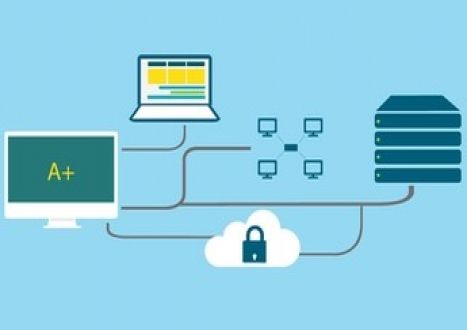





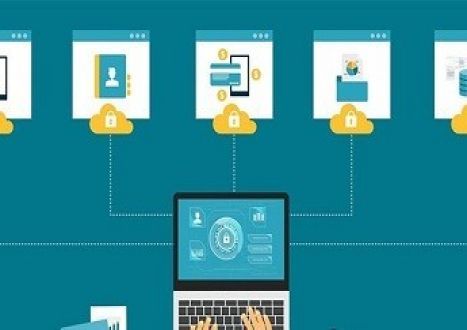
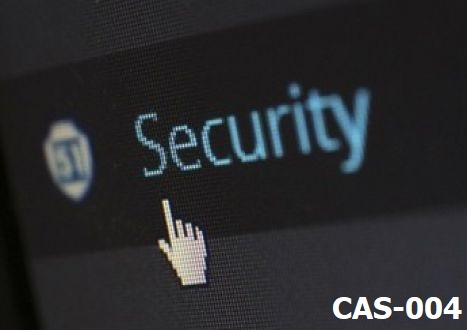






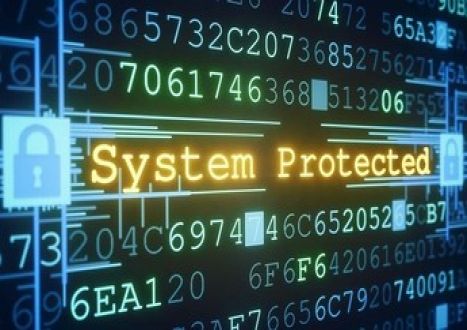




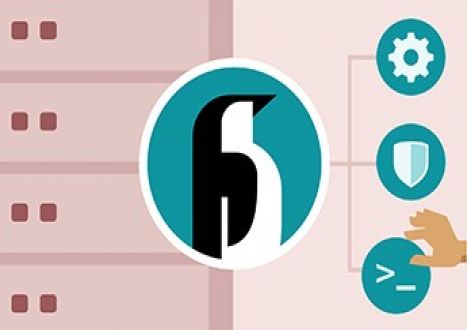







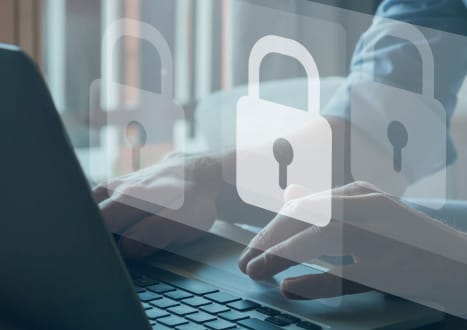










































Only Registered Members Can Download VCE Files or View Training Courses
Please fill out your email address below in order to Download VCE files or view Training Courses. Registration is Free and Easy - you simply need to provide an email address.
- Trusted By 1.2M IT Certification Candidates Every Month
- VCE Files Simulate Real Exam Environment
- Instant Download After Registration.
Log into your ExamCollection Account
Please Log In to download VCE file or view Training Course
Only registered Examcollection.com members can download vce files or view training courses.




